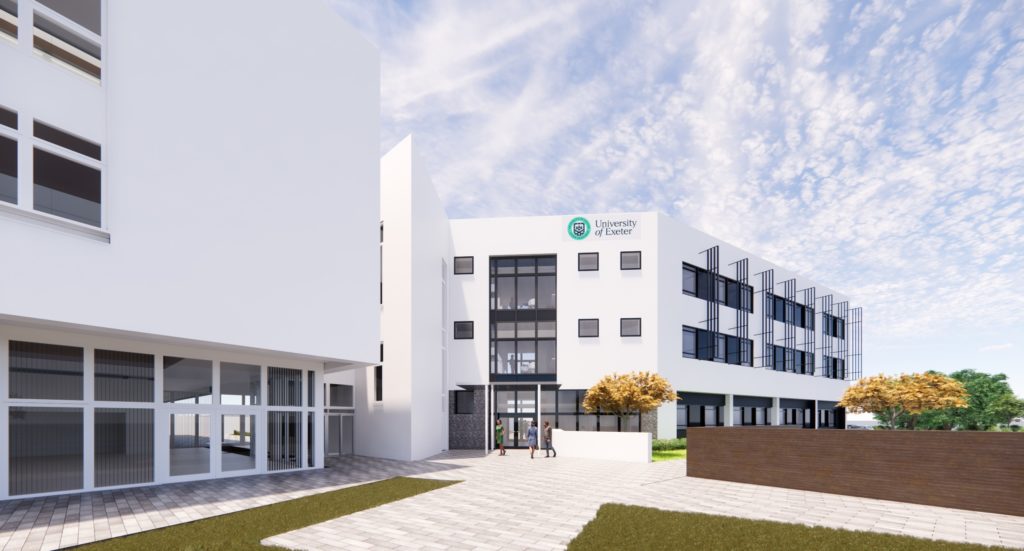Huge investment in Penryn Campus to bolster University of Exeter’s reputation as a global leader in sustainability

An external view of the new building
Building on the success of the Environment and Sustainability Institute (ESI) at the University of Exeter’s Penryn Campus in Cornwall, the institution is proposing to invest in a new facility to expand its sustainable futures research and teaching.
Currently in the design phase, the new three-storey facility is fundamental to the University’s Strategy 2030 ambition to “grow our research, education and partnership activities in Cornwall.”
The new space will provide much-needed space for innovation, creativity, learning and discovery, collaboration and community, where interdisciplinary research and teaching can make a profound and positive difference to our world, now and for decades to come.
Professor Martin Siegert, Deputy Vice Chancellor, is responsible for activity and strategic development in Cornwall at the University. He said: “Our goal is for our Penryn Campus to have a global reputation of expertise in sustainability, where we deliver practical solutions to create a just and sustainable future and solve world-wide environmental issues.
“The new space will allow our team to substantially grow environmental and human health areas of research, to train the next generation of environmentalists and to engage further with businesses and partners within the South West region and globally.
“It will also increase capacity for undergraduate and postgraduate teaching and include state of the art laboratories and collaborative space that will enable us to deliver new, interconnected programmes of learning that are focussed on Future Sustainable Skills.
“This will put Penryn on the map as an international hub for net zero, clean growth and nature recovery research and teaching.”
The new facility will create an enhanced student experience and allow opportunities for students to flourish, with flexible learning spaces, research-led experiences and skills-orientated programmes that meet the demands of a rapidly changing economy.
It will also allow the institution to grow and co-create innovative, new, interdisciplinary areas of research in partnership with businesses, governments and external funding bodies that increase knowledge transfer and provide solutions to global environmental challenges.
The investment in Penryn aligns the University’s goals with regional priorities so that the institution can take a leading role in the prosperity and success of the region.
Sustainability and reducing carbon emissions are fundamental to the design of the new facility. The project has an ambition to achieve Passivhaus status (built to maintain an almost constant temperature) through rigorous low-energy design standards.
The next stage of the project will be to fully design the new facility, with a view to start construction in summer 2024, and complete by winter 2025/26 (dates are subject to change).
To find out more and for regular updates on the project, please visit: www.exeter.ac.uk/penryn2.0



